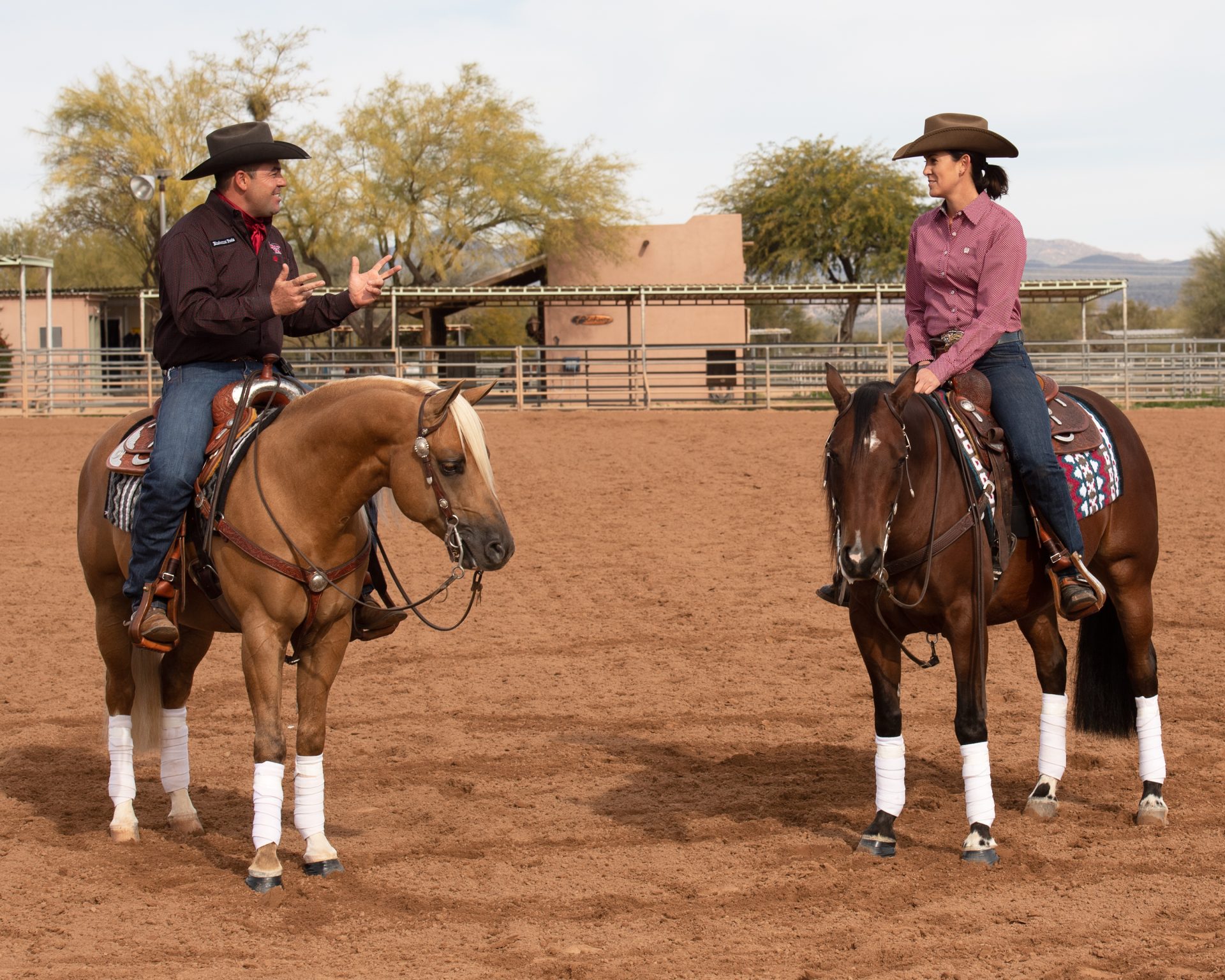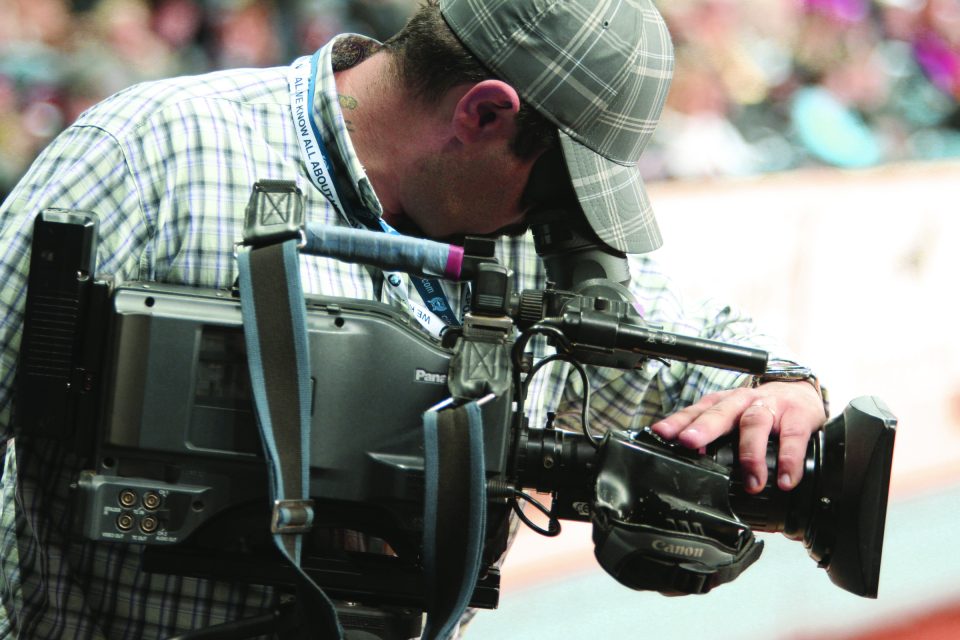Could your training program benefit from having lesson horses? This four-part series might help you say ‘yes’ to lesson horses.
By Katie Navarra

Nearly three years ago, an avid team-penning competitor approached NRHA Professional Ryan Anderson of Clyde Park, Montana, requesting an introduction to the sport of reining. Anderson maintains a half-dozen horses for lessons and invited the rider to take a few “test rides.” After a few rides, the team penner sold his penning horses and cattle and dove head-first into reining. Today, the penner-turned-reiner owns competitive reining horses, including a few broodmares that are in foal to big-name studs.
“He’s probably my best client, and I never would’ve connected with him if I didn’t have lesson horses available,” Anderson said about his successful relationship.
In a business where profit margins are slim, many trainers consider lesson horses too costly. There’s no denying that expenses accompany these horses, as they still need to be fed, vetted, and shod. That can be burdensome, especially for trainers who rent stalls in a commercial facility.
But other trainers view lesson horses as an invaluable revenue generator critical to the long-term viability of their businesses. Anderson believes that even one lesson horse can help any trainer cultivate new clients, generate new revenue, and encourage sustainability of the industry as a whole. Three other professionals—Anderson, Shawn Church, Michelle Chapman, and Michael Davis—explain how in this series of articles.
Part 1: Temporary to Permanent Riders
Part 2: The “Right” Horse
Part 3: Value-Added Benefits
Part 4: Right for You?
Temporary to Permanent Riders
Shawn Church, a NRHA Professional Trainer in McMinnville, Oregon, echoes Anderson’s assessment.
“Lesson horses offer people who’ve never tried Reining a chance to get their feet wet before jumping in all the way,” he said. “Within a few months of taking lessons, many of our new clients ask us to go find a horse for them.”
When new clients shop for a horse, they need an experienced trainer’s help, which generates commission dollars. Once the client finds a horse, they need training and lessons, thus creating regular revenue for the business. Over time, the income garnered from a new client soon outweighs the expense of maintaining lesson horses.
Church admits that not every new client is going to become a reining enthusiast. He estimates that for every 10 people who take lessons, only two decide to stick with the sport. But over several years, that snowballs into a sizeable group of clients.
“It doesn’t seem like much at first, but we’ve been able to see an impact by bringing new people into the sport,” he said. “At a rate of two new clients a year, that can mean as many as 10 new clients over a five-year period.”
In Eaton, Colorado, NRHA Professional Trainer Michelle Chapman of Chapman Performance Horses finds that lesson horses are a critical part of her business. She caters to non pro and youth riders, and providing lesson horses, particularly for her youth riders, is an important service.
“Children aren’t always sure what discipline they want to specialize in,” Chapman explained. “Their parents especially appreciate that we have lesson horses so they can try out our sport before investing in a horse.”
Not only do lesson horses give newcomers a chance to try the sport, the level of training in reining horses helps beginning riders develop balance, fine-tune their motor skills, and learn how to properly cue a horse for a maneuver.
“Reining is very technical, and since our lesson horses are so well broke and responsive, it helps our riders develop the fundamentals correctly from the start,” Chapman added.
Michael Davis, a NRHA Professional Trainer in Davenport, Iowa, agrees that reining horses make the best lesson horses.
“These horses are so well trained, they get off a rider’s leg and respond to the rein,” Davis said. “The word ‘whoa’ is so ingrained in these horses that they stop. And when they respond to that cue, that gives new riders confidence.”
The “new riders” who start on lesson horses can be accomplished in another discipline and simply new to the sport of reining, or they may be completely new to riding all together. In either case, lesson horses create an introduction to the industry and encourage greater participation in the entire discipline.
And it doesn’t mean that you have to offer lessons to both types of new riders. The best aspect about incorporating lesson horses into your training business is that there’s no single right or wrong approach to doing so. It’s a matter of discovering the model that’s a good fit for you. That may mean one lesson horse or six. It may be working with an accomplished hunter/jumper or dressage rider or someone who has never been on a horse in their life. The horses themselves may be retired show horses, family mounts, or sale horses. The choice is yours—it’s about what makes the most sense in your business.
Read the rest of this article at the links at the beginning of this post.



